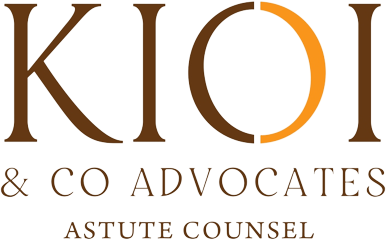Introduction:
Embarking on the entrepreneurial journey in Kenya offers a myriad of business structures, and one that stands out for its simplicity and autonomy is the sole proprietorship. This business model is favored by many due to its ease of setup and minimal regulatory requirements. In this article, we explore the key aspects of sole proprietorship in Kenya and why it could be the right choice for aspiring business owners.
Sole proprietorship is a business structure where an individual owns and operates the business as a single entity. In Kenya, this form of business is recognized as an ideal option for those who wish to start a small business without the complexities associated with larger corporate structures.
Key Features:
- Simplicity of Setup: Setting up a sole proprietorship in Kenya is straightforward. Unlike other business structures that may require extensive documentation, sole proprietorship involves minimal paperwork. Typically, all that’s needed is a business name registration and obtaining the necessary licenses.
- Ownership and Control: As the sole proprietor, you have complete control and ownership of the business. This autonomy allows for quick decision-making and efficient management, crucial for small businesses with limited resources.
- Taxation: One of the advantages of sole proprietorship is the simplicity of taxation. Profits from the business are considered personal income for the owner, and they are taxed accordingly. This eliminates the need for separate corporate tax filings.
- Flexibility: Sole proprietorship offers great flexibility. The owner can easily adapt to changes in the market, make quick decisions, and alter business strategies without the need for extensive consultations or corporate governance procedures.
- Minimal Regulatory Compliance: Compared to other business structures, sole proprietorship involves fewer regulatory compliance requirements. This makes it an attractive option for individuals who want to start a business without being burdened by extensive legal formalities.
Challenges:
While sole proprietorship offers many advantages, it’s essential to be aware of potential challenges:
- Limited Capital: Sole proprietors often face challenges in raising capital. Since the business is an extension of the owner, securing loans or investment can be more challenging compared to larger corporate structures.
- Personal Liability: The owner is personally liable for the business’s debts and obligations. This means personal assets may be at risk if the business faces financial difficulties.
- Limited Growth Potential: Sole proprietorships may have limitations in terms of scalability. Expanding the business may require a transition to a more complex business structure.
Conclusion:
For aspiring entrepreneurs in Kenya, sole proprietorship stands as a viable and accessible option to kickstart a business venture. Its simplicity, ease of setup, and flexibility make it an attractive choice for small businesses. However, potential business owners should carefully weigh the advantages and challenges to determine if sole proprietorship aligns with their goals and the nature of their enterprise. Always seek professional advice to make informed decisions tailored to your specific business needs.

